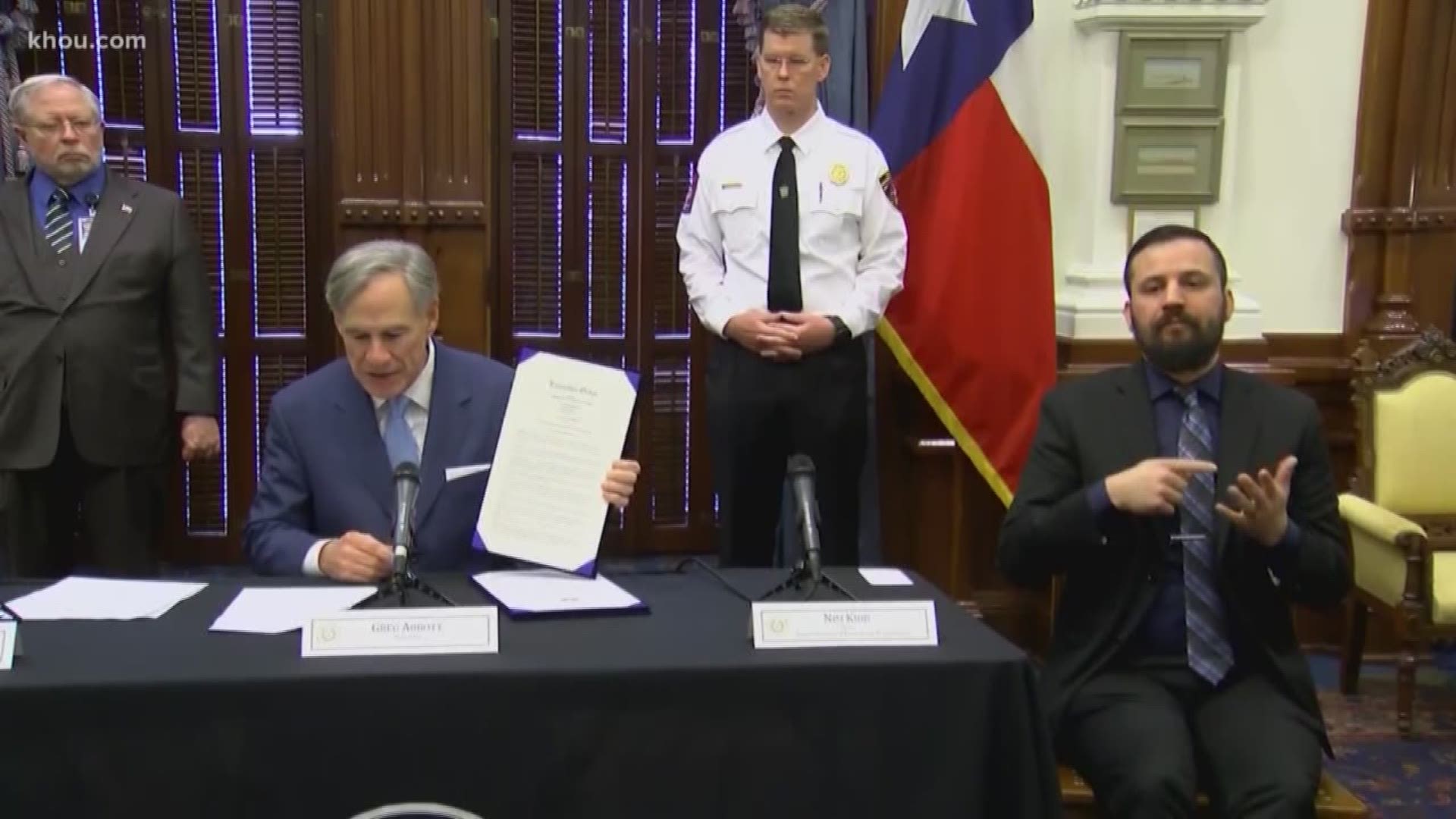AUSTIN, Texas — Editor's Note: In the above video published March 22, Gov. Abbott signs two declarations to prepare hospitals for surge in COVID-19 patients.
Gov. Greg Abbott issued a proclamation Sunday extending the disaster declaration for all Texas counties an additional 30 days, the governor's office confirmed.
It's all so Texas can continue its efforts during the COVID-19 pandemic.
"By extending my Disaster Declaration, we are ensuring the state of Texas continues to have adequate resources and capabilities to support our communities and protect public health," Abbott said in a statement.
The declaration, originally issued March 13, applies to all Texas counties and was set to expire after one month.
This doesn't mean his executive order for resident to stay home unless for essential work or to access essential services has been extended— that's an entirely separate declaration.
As of today, Abbot's "stay home" order is in effect until April 30.
RELATED: Executive order regarding Texas businesses reopening could be coming soon, Gov. Greg Abbott says
The extension allows the state government to continue using resources needed to protect residents such as the State Operations Center and items from the Strategic National Stockpile, which supplements state and local medical supplies during health emergencies.
It also gives the Office of the Texas Attorney General power to indict price-gougers trying to take financial advantage of people during a statewide crisis.
In the statement, Abbott also urged residents to continue following CDC guidelines such as social distancing.
-------
Coronavirus symptoms
The symptoms of coronavirus can be similar to the flu or a bad cold. Symptoms include a fever, cough and shortness of breath, according to the Centers for Disease Control. Some patients also have nausea, body aches, headaches and stomach issues. Losing your sense of taste and/or smell can also be an early warning sign.
Most healthy people will have mild symptoms. A study of more than 72,000 patients by the Centers for Disease Control in China showed 80 percent of the cases there were mild.
But infections can cause pneumonia, severe acute respiratory syndrome, kidney failure and even death, according to the World Health Organization. Older people with underlying health conditions are most at risk for becoming seriously ill. However, U.S. experts are seeing a significant number of younger people being hospitalized, including some in ICU.
The CDC believes symptoms may appear anywhere from two to 14 days after being exposed.
Human coronaviruses are usually spread through...
- The air by coughing or sneezing
- Close personal contact, such as touching or shaking hands
- Touching an object or surface with the virus on it, then touching your mouth, nose or eyes before washing your hands.
Help stop the spread of coronavirus
- Stay home when you are sick.
- Eat and sleep separately from your family members
- Use different utensils and dishes
- Cover your cough or sneeze with your arm, not your hand.
- If you use a tissue, throw it in the trash.
- Follow social distancing
Lower your risk
- Wash your hands often with soap and water for at least 20 seconds. If soap and water are not available, use an alcohol-based hand sanitizer.
- Avoid touching your eyes, nose, and mouth with unwashed hands.
- Avoid close contact with people who are sick.
- Clean and disinfect frequently touched objects and surfaces.
- If you are 60 or over and have an underlying health condition such as cardiovascular disease, diabetes or respiratory illnesses like asthma or COPD, the World Health Organization advises you to try to avoid crowds or places where you might interact with people who are sick.
Get complete coverage of the coronavirus by texting 'FACTS' to 713-526-1111.
MORE CORONAVIRUS NEWS ON KHOU.COM

